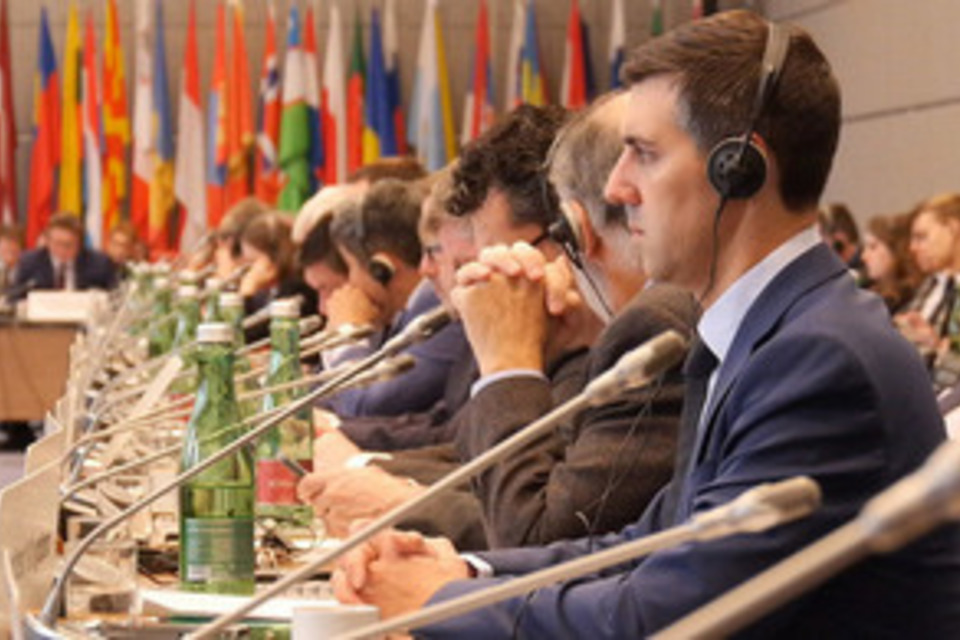OSCE High Commissioner on National Minorities: UK statement
Delivered by Ambassador Neil Bush at the virtual OSCE Permanent Council on 4 June 2020.

I would like to join other delegations in welcoming you, Ambassador Zannier, to the Permanent Council today and thanking you for your comprehensive report.
The UK is a strong supporter of your institution, which plays a vital role in early warning and conflict prevention in the case of tensions related to national minorities.
Your report makes clear the broad scope of activities undertaken by your office and the extent to which you have helped participating States to enhance their security through ensuring the full enjoyment of human rights by all people, including those belonging to national minorities.
We were grateful for the information you shared in this report on how your office had considered a gender perspective in these activities, including in your valuable programmatic work in areas such as education. This demonstrates the importance of gender mainstreaming to help better fulfil your mandate. Taking into account the needs and circumstances of different genders will help us achieve more effective conflict prevention and better understand the intersecting discrimination that can be faced by women from national minorities. Whilst appreciating your institution’s use of quiet diplomacy, I would be grateful for any additional information you can share on how you incorporate a gender perspective and analysis in your engagement with participating States and during country visits.
The UK fully supports your mandate and your institution’s autonomy. We encourage all States to fully cooperate with you and your staff to enable you to fulfil this mandate. This means not only engaging with you to raise concerns about the actions of others, but also engaging positively with your requests for visits and suggestions and recommendations stemming from them. Albeit this is not currently possible due to the pandemic, we nonetheless reiterate the principle that it is important that you are able to travel freely throughout the entire OSCE region, including to areas affected by conflict and illegal annexation.
We were pleased to hear that you have been able to continue your work despite the challenges posed by Covid-19, and we commend you for the leadership you have provided during the pandemic. We were grateful for the guidance you issued to States in March and the thematic guidelines issued in April on how to ensure that short term responses to Covid-19 support social cohesion. As you rightly stated, it is important that when introducing emergency measures governments “remember to include the needs of everyone in society, including persons belonging to national minorities and other marginalised groups”. Thank you for highlighting the particular issues affecting people belonging to national minorities including access to healthcare and information, access to education and the impact of restrictions on movement. Thank you also for noting the double-discrimination faced by women from national minorities who are often concentrated in informal sectors of work and thus face socio-economic difficulties, as well as increased family responsibilities and increased risk of domestic violence.
We continue to value the thematic guidelines produced by your office, as well as your events and programmatic work to raise awareness of these guidelines. We welcome the conference that took place in Lund in November to mark the 20th anniversary of the Lund Recommendations on the Effective Participation of National Minorities in Public Life and we are pleased to hear that the panel considering the effective participation of women belonging to national minorities will inform further work on this issue. Likewise, we look forward to marking the anniversaries of the 1996 Hague Recommendations Regarding the Education Rights of National Minorities and the 2006 Recommendations on Policing in Multi-ethnic Societies. We look forward to seeing the results of systematic mainstreaming of gender into the recommendations on policing.
In conclusion, allow me to thank you and your dedicated team for all your work and wish you all the best in your future endeavours.